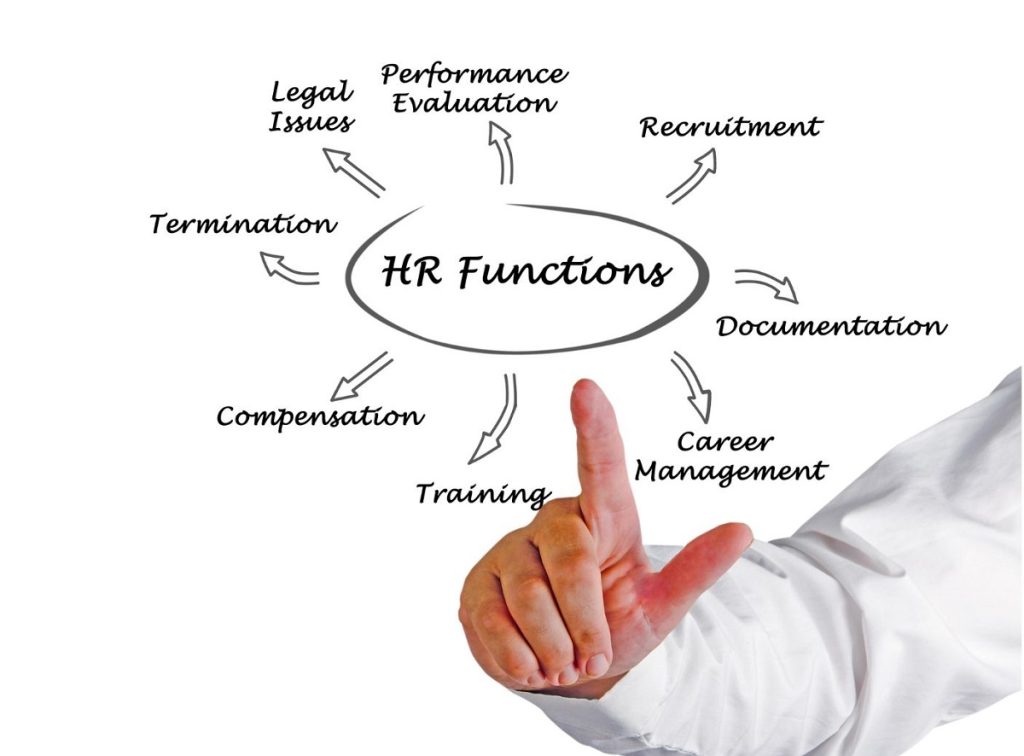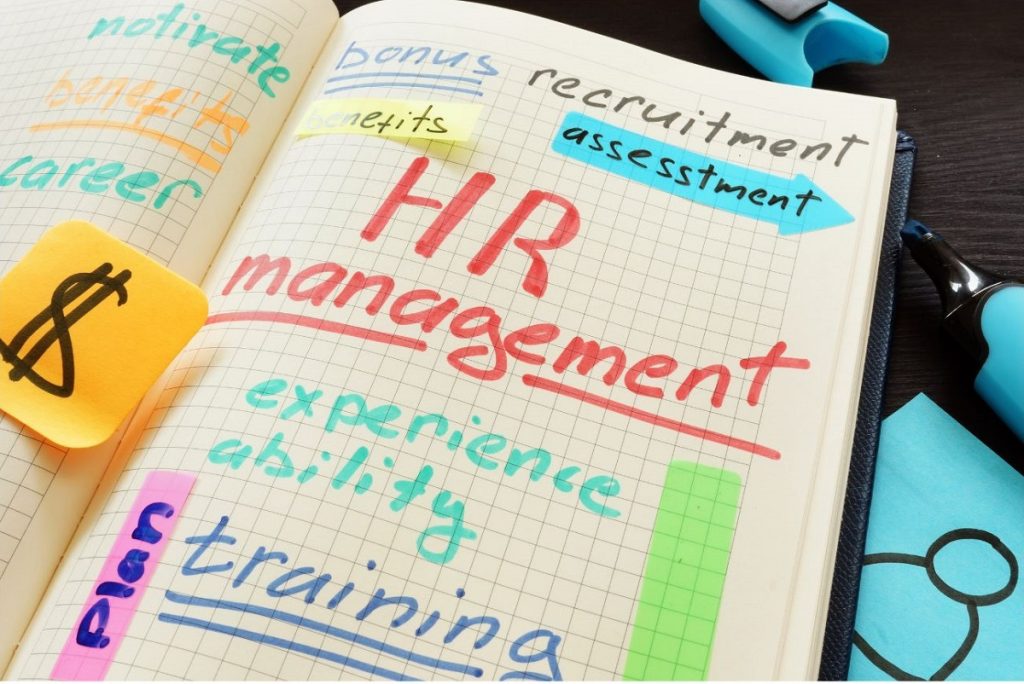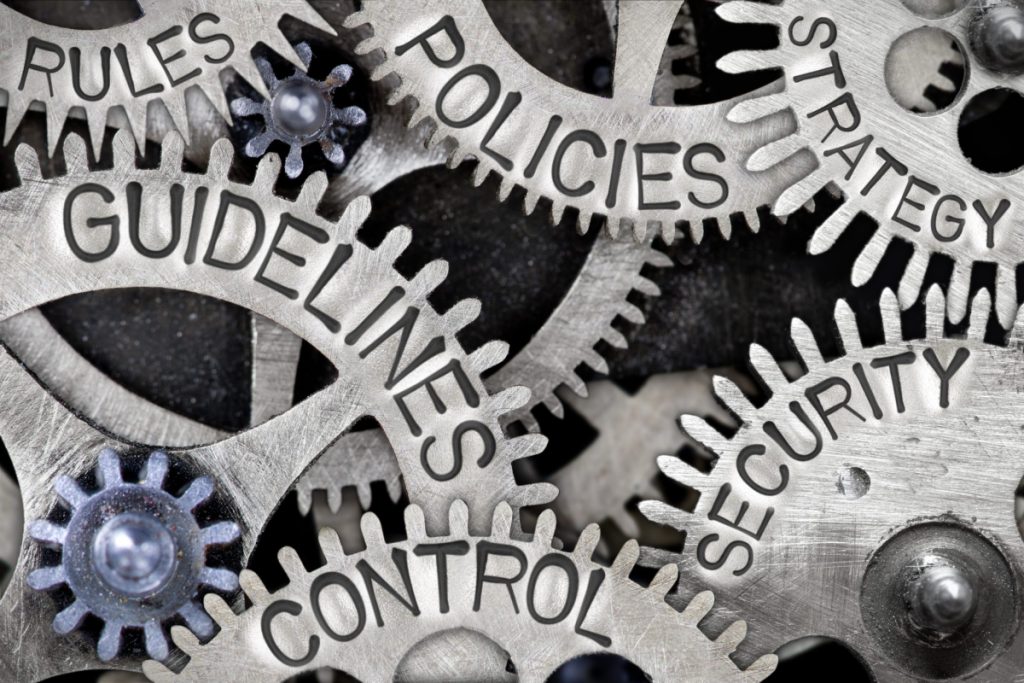With the increasing prominence of remote and hybrid work, HR departments reflect the new realities. Their original functions of hiring and firing, welcoming and orienting new employees, monitoring productivity, and maintaining personnel records are updated to accommodate remote work. Changing HR roles have made the department more important than ever.
As many companies turn to remote or hybrid work, the role and function of HR departments is changing. Recruiting new candidates is no longer a matter of finding local candidates or those who will relocate, welcoming and managing new hires, and reviewing productivity. These processes may be virtual rather than in person. The HR function becomes no less important in an era when employment practice is subject to state and federal laws.
What Are The Traditional Functions Of HR Departments?
Before the 1980s, the department that handled hiring and other employee management issues was called personnel. The change in terminology reflects the realization that employees are not just bodies who do the work of the company but individuals with the potential to be trained, developed, and managed.

Recruiting and hiring remain major functions, but the job also includes:
- Onboarding new hires
- Employee engagement and productivity
- Performance management
- Communicates company goals and policies
- Wellness and mental health
The increasing popularity of remote work brings to mind 7 key questions about HR departments and their changing roles.
1. Are HR Departments Really Necessary?
Small companies typically do not have HR departments, as the number of employees may not generate enough work to keep someone busy. Before setting up an HR department, some might outsource the function to a third party.
All enterprises designate certain HR functions to specific individuals. A company president In a small firm may be involved with hiring certain personnel in office, sales, and technical functions. Someone in accounting may be involved in checking and processing payroll. An office administrator may be responsible for maintaining employee records, filling out government reports, advertising for new hires, and researching benefit plans.
The larger and busier a company gets, the more likely a designated department will oversee personnel management functions.

2. How Have Hiring Practices Changed With The Rise Of Remote Work?
Remote work allows candidates from geographically diverse locations to apply for jobs. This gives companies access to a bigger talent pool.
Even when candidates are from nearby areas, companies may conduct initial interviews online to save time and travel costs for both parties. Virtual interviewing became popular during the pandemic for health and safety reasons, but many employers continue to use it.
The process saves money, shortens the time to hire, streamlines the hiring process, and offers candidates a better interviewing environment. Companies now routinely arrange virtual first interviews for all candidates to standardize the process. In-person interviews give a better picture of the candidate’s body language and are more personalized, and this method is often used for subsequent interviews
3. What Is HR’s New Role In Onboarding?
HR professionals proudly manage the four C’s—clarification, compliance, connection, and culture. When new hires are present on site, the team can make policies clear, share expectations, and introduce new hires to corporate culture as they make a one-to-one connection.
During the pandemic, a report known as Failure to Attach: The Crisis for Pandemic Hires reported that many new hires lacked clarity about what they were supposed to do, felt less a part of a team, and felt less concern for themselves and their well-being by the company.
Virtual onboarding can be difficult. HR departments have to work harder to get employees excited about the job, introduce them to necessary contacts within the company, and provide whatever resources they need to get started with their job.
Prior to actual onboarding, companies who successfully welcome remote workers send out welcome in care packages before the start date, introduce new hires to team members, distribute the employee handbook, and familiarize them with how to access benefits portals and other resources.
The actual training can be offered asynchronously, although having some type of personal introduction helps draw people into the company. So as not to overwhelm newbies, training can be released in smaller segments mastered as needed.

4. How Can HR Help With Performance And Discipline Issues?
With remote employees out of the line of vision for managers, HR is often called on to develop benchmarks for measuring job performance. This can take the form of controversial time tracking that makes employees feel spied on, but many time management systems like Trello, Asana, Monday.com, and more help both workers and bosses track their time and assignments.
HR should formulate a remote work conduct policy that covers company expectations during work hours and meetings. Written policies set guidelines for workers. HR or a manager might talk to those who violate the rules.
5. How Does HR Help In Arranging Remote Work?
Increasingly, the job also includes making flexible work arrangements. HR personnel works with department managers to verify that all job functions are suitable for remote and then work with individuals who requested a remote placement. As companies may need a presence in different locations for tax purposes, human resources may also work with accounting to ensure everything is set up correctly.
When companies provide equipment for home offices or issue subsidies to purchase supplies and equipment, HR develops and shares the policies and makes the arrangements for the workers to get what they need. When employees leave, HR may organize the return of anything that should return to the company.
Companies that have gone all in on remote work, such as Airbnb, have a sizeable 30-person department that makes the necessary connections for remote work. Some firms like Cisco even help arrange for their digital nomad employees to set up shop in their new locations.

6. What Is HR’s Role In Processing Payroll?
Whether payroll falls under HR or finance/accounting depends on which school of thought you follow. Advocates of making it an HR function see it as part of employee record keeping that notes personal information, pay rates, starting and termination dates, promotion dates, and benefits available. Though it has an employee relations aspect, it can be considered a financial task as it adheres to accounting procedures and tax laws.
With remote employees, the payroll process can be more complex as companies must be attuned to payroll tax requirements in various cities, states, and countries for remote employees. When remote workers are independent contractors, the employer does not withhold taxes. Workers must be properly classified as employees or independent contractors to comply with withholding tax requirements.
Some companies avoid the debate of who should handle payroll by turning it over to a third-party firm that processes the checks or, more commonly these days, makes the deposit electronically and prepares end-of-year tax documents.
7. How Can HR Aid Company Communication?
In the absence of in-person communication, HR is often the unifying force in an organization. Sending out news updates and chatty newsletters can keep information and camaraderie flowing.
HR can orchestrate occasional meetings, holiday celebrations, and happy hours that feature icebreakers that help people get to know others.
Remote work can be isolating for employees, so modern HR departments routinely disseminate information about mental health. Some mental health benefits are frequently included in employee health insurance, but HR can also offer supportive workshops to help educate employees on this subject.
8. What Is HR’s Role In Determining Compliance With Legal Mandates
Hundreds of laws protect employees in the workplace regarding wages and hours, overtime, health and retirement benefits, and health and safety standards. Some laws prohibit discrimination, offer special protection to those with disabilities, offer needed time off with the FMLA (Family Medical Leave Act), and provide protection to workers injured on the job.

Employers must honor the provisions enumerated in federal, state, and local employment laws. Failure to do so can not only harm employees but puts companies at risk of lawsuits. The HR department keeps the company current on current mandates that apply to both on-site and remote work and often works with the legal department to ensure that the company is treating companies fairly and avoiding lawsuits and compliant with laws.
Having workers doing the job off-site does not relieve companies of responsibility for workers’ health, safety, and fair treatment. HR must do it what can to prevent virtual harassment and bullying by workers and supervisors.
What HR does for remote companies is similar to its long-standing role in brick-and-mortar businesses. The special requirements and concerns with remote and hybrid work have expanded its function.


